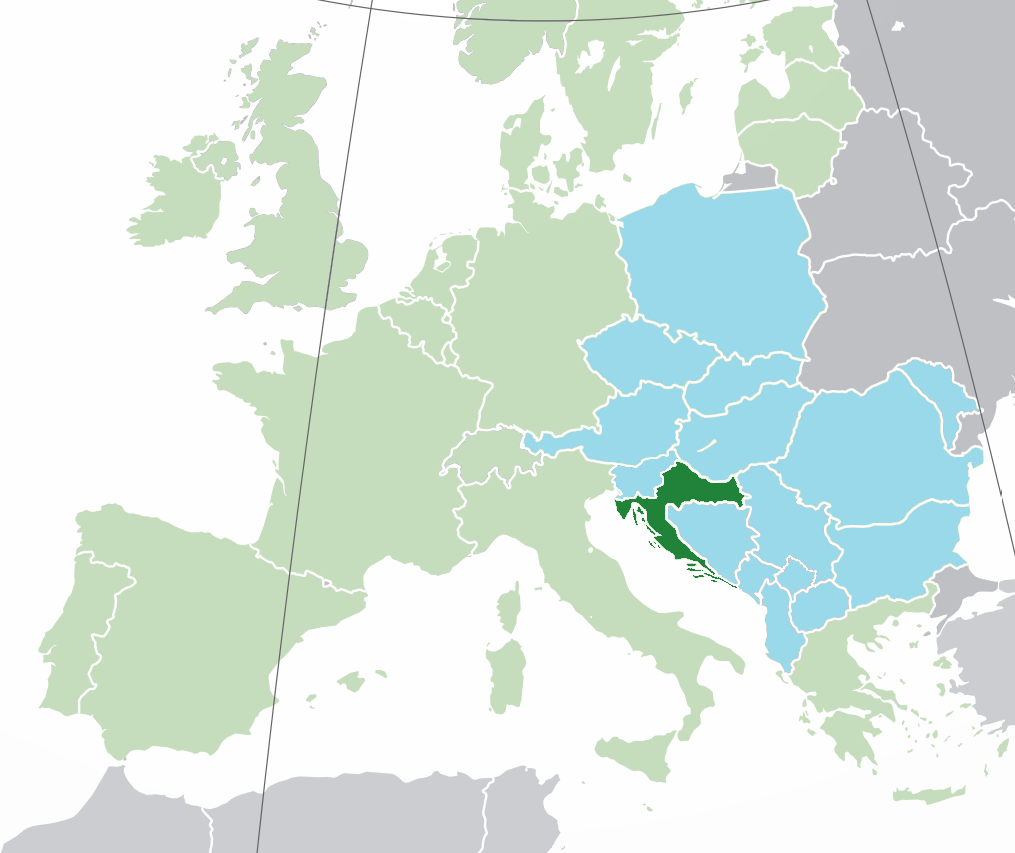
Croatia participates with two groups located at
Faculty of Science, University of Zagreb
Faculty of Natural Science, University of Split
At the Department of Chemistry, Faculty of Science, University of Zagreb, Croatia, thermodynamic investigations involving equilibria of ion associations and complex forming reactions in solutions and on the surface are being performed and structures of complexes and relevant thermodynamic parameters are determined. Parallel kinetic investigations provide an insight into the reaction mechanisms. Special emphasis is given on the studies in the field of physical chemistry of macromolecules. Properties of polyelectrolytes and proteins in solution are studied as well as their adsorption on solid substrates. A special field of interest are interpolyelectrolyte interactions which could lead to the formation of polyelectrolyte complexes and multilayers. Among available experimental methods (micro)calorimetry, spectrometry, optical reflectometry, electrokinetics and acoustophoresis should be mentioned.
Contact person:
Prof. Dr. Davor Kovačević (e-mail: davork@chem.pmf.hr)
Department of Chemistry
Faculty of Science
University of Zagreb
Horvatovac 102A
HR-10000 Zagreb
The Faculty of Natural Science, University of Split, Croatia, is involved in the network with members of Department of Physics and Departments of Chemistry. The molecular simulations group from the Department of Physics investigates the physical and chemical properties of associated liquids, amphiphilic solutions, and lipids in water, aiming at the description of static and dynamic properties related to the mechanism of destruction and formation of the molecular self-assemblies. In addition to the molecular scale studies, the work of the group also include simulations of biological macromolecules, focusing on the stability of cellular membranes in interactions with antimicrobial peptides. The simulations studies are supported by the Atomic-Force Microscopy (AFM), and the microbiological testing, permeability testing, cytotoxicity and genotoxicity testing on host cells, which are done in collaboration with the Department of Biology and Department of Chemistry. The used methods are molecular dynamics simulations, Monte Carlo simulations, and QSAR (Quantitative-Structure-Activity-Relationship) models for the design of new compounds. The members of the group are also heavily involved in the teaching activities in Bachelor’s and Master’s studies in Physics, as well as in Doctorate School of Biophysics. The computers resources at our disposal are local cluster Hybrid based on the Nvidia-graphics card technology, and the computer laboratory equipped with the Linux systems available for the high-programming courses.
The physical chemistry group from the Department of Chemistry investigates thermodynamics of ionic reactions in two- and three component solvent mixtures, to colloidal systems for transportation of drugs, surfactant-free microemulsions and preparation of membranes for ion-selective electrodes. Available equipment includes various dispersers and homogenizers, various capillary viscometers, tensiometer, UV/vis spectrophotometer, conductometer and zetasizer.
Contact persons:
Assoc. Prof. Dr. Larisa Zoranić (e-mail: larisa.zoranić@pmfst.hr)
Department of Physics
Assist. Prof. Dr. Perica Bošković (e-mail: perica.boskovic@pmfst.hr)
Department of Chemistry
Faculty of Natural Science
University of Split
Ruđera Bošković 33
HR-21000 Split
